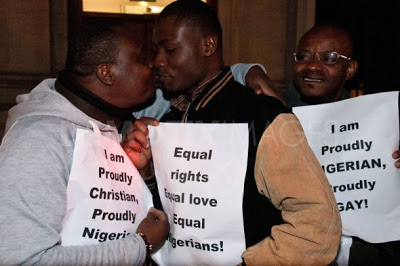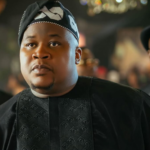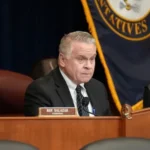
According to BBC
About 50 people, mostly men, crowd around the front porch of a social club in Nigeria’s biggest city, Lagos, cheering on a shy-looking young man, who proceeds to sing a ballad. Backstage, another man puts on his wig and takes a quick glance at his pocket mirror, before adjusting his tight-fitting red dress.
Five other men also dressed in drag outfits appear, checking on each other’s make-up as they wait for their turn to perform for the crowd. A friend invited me here a few months ago,” one chatty spectator says excitedly. “I love this place because it makes me feel at home”.
This gathering of members of the gay and lesbian community in Lagos is held regularly, albeit discreetly, but it could soon be illegal.
The vast majority of gay Nigerians may not be interested in this kind of event but they still have to hide their sexuality in this conservative society.
Whilst already illegal, homosexuality is widely frowned upon across Nigeria and has been the subject of several bills in the National Assembly.
The Same-Sex Marriage (Prohibition) Bill specifically outlaws same-sex unions.
It also bans gatherings of homosexuals or any other support for gay clubs, organisations, unions or amorous expressions, whether in secret or in public.
‘Repulsive’
The bill has been passed by Nigeria’s Senate – the highest chamber – and is now being reviewed by the lower chamber, the House of Representatives.
If approved, it will be sent to the president to sign it into law, after which same-sex couples could face up to 14 years in prison.
But Nigerian homosexuals complain that the stigma they face is already enough punishment for their way of life.
Kunle (not his real name), a gay man living in Lagos, is outraged by the proposed law: “How does a government think that sending someone to prison would change his or her sexual orientation?
“How logical is that?”
One of Nigeria’s few openly gay human rights activists, Rashidi Williams, notes that the bill seeks to ban something which is already illegal and which no-one is publicly advocating.
“All we are asking for is to repeal the repressive laws in this country,” he says.
The bill has been condemned abroad – most recently by Australian lawmakers – making its proponents see this piece of legislation as a way of protecting Nigerian society from foreign influences.
“Ours is to weigh the aggregate of opinion – what the majority of Nigerians want,” says Abike Dabiri, a member of the House of Representatives.
“If majority of Nigerians want same-sex marriage, then why not?”
She adds: “You have a right to your sexual preference but by trying to turn it into marriage do you realise you could be infringing on the human rights of the other person who finds it repulsive?”
Read the rest of the story HERE





![Ebuka Obi-Uchendu Re-proposes To Wife On 10th Wedding Anniversary [Video] 8 Ebuka Obi-Uchendu Re-proposes To Wife On 10th Wedding Anniversary [Video]](https://media.kanyidaily.com/2026/02/07165038/Media_personality_Ebuka_Obi-Uchendu_re-proposes_to_his_wife_in_Italy_on_their_10th_wedding_anniversary__Video_-150x150.jpeg)
![US Missionary Accuses Benue Govt Of Sabotaging Yelwata Rebuilding Effort [Video] 10 US Missionary Accuses Benue Govt Of Sabotaging Yelwata Rebuilding Effort](https://media.kanyidaily.com/2026/02/07155420/Screenshot-2026-02-07-101511_1770459345-150x150.png)












!['Osama Bin Laden' Caught After Killing Five Persons In India [Photos] 34 'Osama Bin Laden' Caught After Killing Five Persons In India [Photos] 10](https://media.kanyidaily.com/2019/11/12213703/bin-laden-elephant.jpg)






